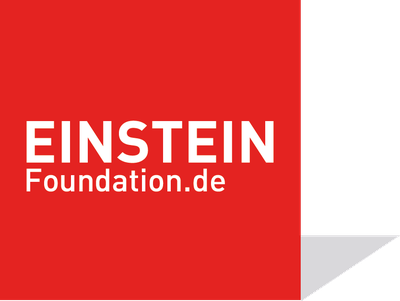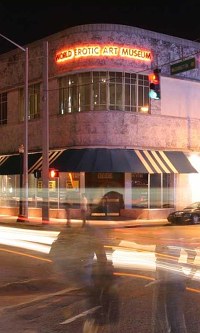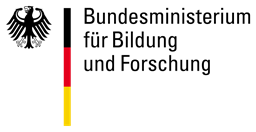Projects
|
„Jewish Homosexual Modernism in the German Speaking World and in Mandatory Palestine/Israel“ The project is a cooperation between Humboldt-University and Hebrew University in Jerusalem. It is funded by Einstein Foundation Berlin from January 2020 to December 2022. The project puts forward the thesis that between 1890 and 1945 a corpus of literary texts – a “Jewish Homosexual Modernism” – came into being in the German cultural sphere. This canon of literature comprises German and Hebrew and Yiddish texts that deal with both Jewishness and homosexuality and their entanglements. Jewish and anti-Semitic as well as homosexual and homophobic discourses of the late 19th and early 20th century have already been examined by several researchers. Our research project focuses on the interconnections and overlaps of these discourses. At the beginning of the 20th century, the notion of Jewishness includes religious, ethnic and cultural definitions that were elaborated by self-identifying Jew, gentiles and anti-Semites. Similarly, the notion of homosexuality contains emancipatory and homophobic, sexologist, cultural and gender-specific definitions. These conceptualizations converge and shape each other in the literary texts of Jewish homosexual modernism. Aesthetic concepts of center and periphery, territorialization and deterritorailization, home and exile, secrecy and disclosure, as well as visibility and invisibility will be guidelines of our analysis. The Berlin sub-project will examine mainly two bodies of texts: On the one hand, fictional works of canonized authors like Else Lasker-Schüler and Thomas Mann will be analyzed. On the other hand, our research will focus journals and magazines that were published between 1890 and 1945 in Berlin. We will search lesbian and gay journals for Jewish references and, in turn, Jewish journals and magazines for homosexual/homoerotic content. An emphasis will be placed on the mediality of journal literature, taking into account its conditions of production, distribution and reception. This twofold research approach will enable us not only to unearth the literary canon of Jewish homosexual modernism but to identify interconnections with already well-established canons of literature.
|
 |
|
Naomi Wilzig Collection – An Art Collection on the Cultural History of Sexuality The World Erotic Art Museum (WEAM) was founded in 2005 by Naomi Wilzig (1934-2015), a Jewish patron and widow of a German Holocaust survivor. Located in Miami Beach, Florida it houses an extensive collection of erotic art covering many eras and cultures. Since 2018 parts of the collection have been coming to Humboldt University on loan for a period of five years to be indexed, digitized, and researched under the direction of the Research Center. Parts of the collection will be displayed in different museums in Berlin and elsewhere. The unique collection forms an excellent basis for the research into the cultural history of sexuality and will be able to partly replace the lost collection, which the Jewish sexologist Magnus Hirschfeld (1868-1935) kept in his Institute of Sexual Research in Berlin until it was destroyed by the Nazis in 1933. The first exhibition "From the Museum of Passions" took place in May 2015 in the Pergamon atrium of the Humboldt University. In December 2017 the Research Centre curated an exhibition about Magnus Hirschfeld and his institute at the World Erotic Art Museum, Miami Beach USA. In 2018 a second exhibition with objects from the Naomi Wilzig collection was shown in Berlin. "The Eroticism of Things. Collections on the History of Sexuality" was a joint exhibition realized in cooperation with the Werkbundarchiv – Museum der Dinge i and the Kinsey Institute in honor of Magnus Hirschfeld’s 150th birthday. It was on display from 3 May to 1 October 2018 at the Werkbundarchiv - Museum der Dinge in Berlin.
In January 2019, the Research Centre organised the international interdisciplinary workshop "Sexuality at the Museum: Educational Concepts" together with the Sexual Knowledge Unit at the University of Exeter and with the support of the lab.Bode oft the Bode Museum, Berlin to discuss educational and curatorial work on sexuality and gender based on the Naomi Wilzig collection. The loan is accompanied by a generous financial support from the Naomi Wilzig LLC. A cooperation with the Kinsey Institute (Indiana University, Bloomington) is in preparation. The project is a great honor for the Humboldt University of Berlin and a historically significant contribution to the reconstruction of a lost Jewish cultural heritage in Germany. Naomi Wilzig (1934-2015) - Obituary
|
World Erotic Art Museum, Miami Beach
Video: Naomi Wilzig speaking about the beginning of her collection (2010).
Exhibitions:
|
|
“Cruising the 1970s: Unearthing Pre-HIV/AIDS Queer Sexual Cultures” The European research project is being carried out together with the UK (Edinburgh), Spain and Poland. It is funded for three years as part of the HERA Programme “Uses of the Past” (2016-2019). At the center of the research project “Cruising the Seventies” (CRUSEV) lies the question, how lesbian, gay, bi, trans and queer social and sexual cultures in the decade between the emergence of an international gay movement and the first documented cases of HIV/AIDS should be reconstructed. How can these be understood and what contribution can this knowledge provide in view of queer politics and identities in Europe’s present and future. The German sub-project investigates the time between 1971, the year in which Rosa von Praunheim’s film It Is Not the Homosexual Who Is Perverse, But the Society in Which He Lives led to the founding of the first gay groups in the Federal Republic of Germany, and 1982, the year in which the term AIDS was scientifically defined. The sub-project questions the dominant narrative of the lesbian and gay movement of the 1970s as a golden age of queer history, by taking into account historical witnesses, literature and films from the time and about from LGBTQ and relating them to current texts, exhibitions and interviews. Literary examinations of lesbian and gay identities and movement practices are being explored in the two Berlin sub-projects. In the project about lesbian fiction, virulent narratives of the 1970s are being examined and associated with contemporary identity constructs within the movement. The project on gay literature is exploring the relationship of the journalist and satirist, Felix Rexhausen (1932-1992), and his texts on the gay movement. Rexhausen followed the gay politics of West Germany from a critical and satirical point of view, starting in the mid-1960s and some way into the AIDS crisis. His work represents a unique commentary on the 1970s as a decade. Cooperations: Daniel Baranowski, research consultant (Federal Foundation Magnus Hirschfeld); Maria Borowski (Technische Universität Berlin); Deutsche AIDS-Hilfe Berlin; Dr. Benno Gammerl (Max Planck Institute for Human Development, Berlin); Professor Dr Elahe Haschemi Yekani (Europa-Universität Flensburg); Dr Dirck Linck (Berlin); Patsy l'Amour laLove (Humboldt-Universität zu Berlin); Schwules Museum* Berlin; Assistant Professor Dr Marc Siegel (Goethe-University Frankfurt/Main); Spinnboden Lesbenarchiv und Bibliothek, Berlin |
|
|
“Jewish Presence in Weimar Gay and Lesbian Culture and the German-Jewish Contribution to the Emergence of Gay Culture in Palestine/Israel, 1933-1960” The research project, carried out together with the Hebrew University of Jerusalem, is being funded by participant universities in the first phase (2016) and by the German Israel Foundation (GIF) in the second phase (2017-2019). The Berlin sub-project focusses on the presence of Jewish protagonists in gay and lesbian Berlin before 1933. The specific Jewish contribution to Berlin as a center of homosexual culture as well as the homosexual equality movement in the Weimar Republic is being explored. The forms of cultural commitments from Jewish activists and artists for the gay-lesbian community are of particular interest, as well as the political engagement of doctors, lawyers and economists for the abolition of the special criminal law against homosexuals. At the same time, it is also important to look at the fate of the Jewish protagonists after 1933, as well as investigating their escape routes, in particular those leading to Palestine. The special focus in the Israeli sub-project is on the impetus the homosexual immigrants gave the development of a queer community in Palestine/Israel. To what extent could the migrants bring in, continue or develop further subcultural forms of homosexual social life, but also the political activism for the recognition of same-sex love? The project is providing fundamental research with the exploration of these aspects of Israel's history. |
|
|
AIDS Archive Pilot Project Through the AIDS Archive, a pilot project in collaboration with the Humboldt University Library in the Grimm Centre, our Research Centre is working to establish a basis for a collection on the cultural history of HIV/AIDS. To this end, the Centre is working to expand the Haeberle-Hirschfeld Archive’s collections on the politics of AIDS through documents received through a range of donations and bequests, which complement the archive’s existing holdings. Over time, we aim to develop a model collection that can be preserved for future research. In light of the substantial gaps around this subject in archives, libraries and collections, preserving and investigating materials on the cultural and political history of HIV/AIDS is essential. In expanding the collections, we seek to preserve the traces that living with HIV and AIDS has left over the last few decades, and not only for homosexual men. To this end, it is important to document the full range of new forms of self-organisation, empowerment and political intervention that have developed. The project therefore centres on private as well as institutional materials which exemplify the discussions and debates around HIV/AIDS on both a personal and a societal level. The Research Centre is working in collaboration with Corinna Gekeler and Axel Schock, both members of the working group Getting AIDS History into the Museum, to implement these plans. The project is financially supported by the Federal Foundation Magnus Hirschfeld. |
Axel Schock and Corinna Gekeler |
|
Digitization the Magazine Der Eigene (Our Own) Together with the Humboldt University Library and Berlin’s Gay Museum, our Research Centre is working on digitalising the Berlin arts and culture magazine Der Eigene: Ein Blatt für männliche Kultur (Our Own: A Magazine of Masculine Culture) in order to make it publicly available to researchers online. The magazine was published between 1896 and 1933. It was of great importance for the homosexual rights movement in the first third of the twentieth century, and today it is rarely to be found in libraries. Yet this makes it all the more remarkable as a source for researching sex as a cultural phenomenon. The Humboldt University Library’s holdings in the Grimm Centre form the basis for the digitalisation project. The Research Centre is working to locate further materials through contacts with other libraries and private collections, in order to ensure that the magazine is digitalised in its entirety. |
Cover of the Magazine |
|
Monograph on Magnus Hirschfeld’s Institute of Sexology (1919-1933) Our Research Centre is supporting Rainer Herrn in preparing a monograph devoted to Magnus Hirschfeld’s Institute of Sexology (1919-1933), in collaboration with the Magnus Hirschfeld Foundation and the Berlin Society for the History of Medicine. The monograph details the Institute’s various activities and the extent of its influence, and locates it within intellectual and social history. The book’s subjects include the intellectual and scientific views held by the Institute’s researchers and their effects on sexual therapy and forensics, as well as the Institute’s work on sexual education, counselling and reform. It also explores how the Institute’s collections were displayed in its Museum of Sexual History and Library of Sexology. |
|
Completed Projects
|
"From the Museum of Passions" - An Exhibition Project with Early-Career Researchers As part of a project sponsored by the Excellency Initiative of the Humboldt-University, the Research Center curated the exhibtion "From the Museum of the Passions. Collections on the Cultural History of Sexuality by Magnus Hirschfeld (Berlin, 1919-1933) and Naomi Wilzig (Miami Beach, 2006-2015)", which opened on 14 May 2015. The project experimented with ways of exhibiting the cultural history of sexuality and demonstrated the potential of the World Erotic Art Museum collection for academic research into this history An international team of early-career researchers worked on the concept for the exhibition. Three students from the departments of Art History and Museum Studies and from the Institute for Art in Context (University of the Arts, Berlin) were responsible for the design of the exhibition. The team was advised by Prof. Michael Fehr, member of the executive board of the Werkbundarchiv - Museum der Dinge in Berlin, and supported by Helmut Schuster, curator of the World Erotic Art Museum in Miami. |
Exhibition Space in the Pergamon-Atrium Photographer: Andreas Pretzel
|
|
Hirschfeld’s Testament Written in diary form, Magnus Hirschfeld’s last will and testament is an important source of information on the later years of his work and his efforts to secure his legacy. It documents his world tour and his exile in Austria, Switzerland and France until his death in 1935. Our Research Centre supported and financed Ralf Dose’s edition of this historic document, which was published in May 2013 (see Publications). |
Book cover: Magnus Hirschfeld: Testament. Heft II. |
|
Hirschfeld’s Legacy: Investigating the Deeds of Foundation When Magnus Hirschfeld established a foundation in 1919 as the basis for his establishment of the Institute of Sexology, he instructed: ‘In the event that the foundation […] should be dissolved, its assets shall pass to the University of Berlin or, if the latter declines to accept the assets, to another university.’ These circumstances arose in 1933 when the Institute was raided and shut down by the Nazis on 6 May 1933. The University of Berlin rejected the bequest at this time. Our Research Centre has transcribed the deed of foundation. Based on this transcription, Ralf Dose is working on a publication which asserts the document’s importance and provides a commentary on it and its place within the history of the Institute. Alongside this project, we aim to document the efforts of the Humboldt University since the 1980s to draw on Berlin’s lost research tradition, to commemorate Hirschfeld’s Institute, and to assume responsibility for the historical legacy of Berlin’s sexological tradition. The project is financially supported by the Humboldt University Foundation. |
|












